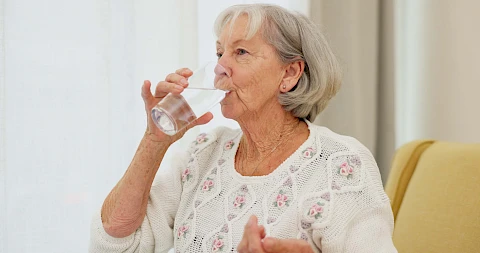
Senior incontinence is a common issue for many people in their golden years. Millions of older adults experience some form of incontinence, which can affect their dignity and comfort. Managing it with compassion and practicality is essential in maintaining their quality of life, and caregivers play an important part. We've put together a guide for caregivers to help them understand senior incontinence and how to manage it effectively.
Incontinence Basics
Several common causes of incontinence in seniors include weakened pelvic muscles, urinary tract infections, and certain medications. Types can vary from stress incontinence to urge incontinence, each requiring different approaches. Incontinence can significantly impact a senior's life, often leading to embarrassment or isolation. It's equally challenging for caregivers who must ensure seniors remain comfortable and confident.
Setting up a regular bathroom schedule helps prevent accidents. Encourage seniors to use the bathroom regularly, even if they don't feel the urge to go. Staying hydrated and maintaining a healthy diet can also support bladder health. Pay attention to non-verbal cues the senior may need to go to the bathroom and respond promptly to avoid discomfort.
Selecting the Right Products
Choosing the appropriate incontinence products is crucial in managing the condition effectively. Options include pads, briefs, and protective underwear, each offering different absorbency levels and comfort. When selecting products, consider factors such as:
- Absorbency: Match the product to the senior's needs.
- Comfort: Ensure the product feels comfortable for long periods.
- Discretion: Opt for products that are easy to wear under clothing.
Finding the right fit is often a matter of trial and error, so don't be discouraged if it takes a few attempts to find the perfect product.
Maintaining Skin Health
Skin care is an essential aspect of managing incontinence, as prolonged exposure to moisture can lead to irritation or infections. Establish a regular skincare routine, including gently cleaning and drying the skin and applying barrier creams. Be vigilant in preventing and treating any signs of skin irritation early, as this can prevent more serious conditions from developing.
Having Sensitive Conversations
Discussing incontinence with a senior can be sensitive, but approaching the topic with empathy and respect is crucial. Start the conversation in a private, comfortable setting and be direct yet gentle. Encourage seniors to share their feelings and involve them in decisions regarding their care. Remember, maintaining dignity and offering reassurance can significantly alleviate any embarrassment or anxiety they may feel.
Do You Need More Support Caring for a Senior With Incontinence?
If incontinence persists, consulting a healthcare professional is a wise step. Doctors can offer medical interventions or treatments that can make a big difference. Regular medical check-ups can also help identify underlying causes that need to be addressed.
Managing senior incontinence with sensitivity and practicality improves the daily lives of both seniors and caregivers. For those who need extra support, Senior Helpers Chesterton is here to provide professional caregiving services in Valparaiso, Portage, Chesterton, Westville, and Michigan City. Contact us for assistance and resources, including personal care services. Your compassionate care can make all the difference.